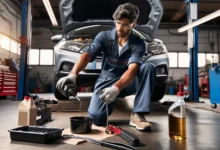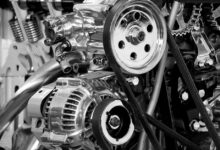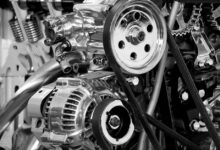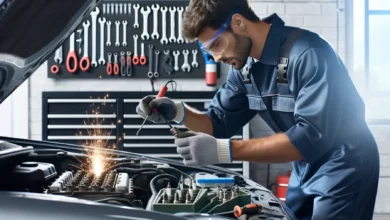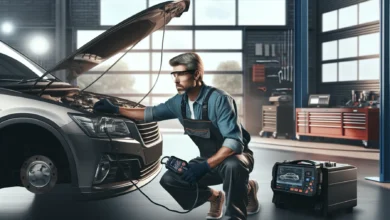How Often Should You Get Car Maintenance?
Sponsored Ads
As a responsible car owner, it’s crucial to understand the importance of regular car maintenance. Not only does it keep your vehicle running smoothly and safely, but it also helps extend its lifespan and save you money in the long run. Determining how often you should get car maintenance depends on various factors such as your driving habits, the age of your vehicle, and the manufacturer’s recommendations.
This comprehensive guide will provide you with all the information you need to know about how often to get car maintenance, its benefits and drawbacks, and essential tips to keep your vehicle in optimal condition. By following these guidelines, you’ll ensure a reliable and long-lasting driving experience.
Introduction
Regular car maintenance is an essential aspect of responsible vehicle ownership. It involves a series of inspections, services, and repairs to keep your vehicle functioning at its best, ensuring safety, reliability, and longevity. Determining the optimal frequency of car maintenance is crucial to strike a balance between avoiding unnecessary expenses and ensuring your vehicle receives the necessary attention it needs.
There are several factors that influence the frequency of car maintenance, including:
- Driving habits: Aggressive driving, frequent towing, or driving in extreme conditions can increase the need for maintenance.
- Age of the vehicle: Older vehicles generally require more frequent maintenance as components wear out over time.
- Manufacturer’s recommendations: Car manufacturers provide specific maintenance schedules based on their vehicles’ design and engineering.
- Climate and road conditions: Harsh climates and rough roads can take a toll on your vehicle, requiring more frequent maintenance.
Understanding these factors will help you establish a personalized maintenance plan that meets your specific needs and ensures your vehicle’s optimal performance.
The benefits of regular car maintenance are numerous. It helps:
- Improve safety: Regular maintenance ensures that your vehicle’s safety features, such as brakes, tires, and lights, are functioning properly.
- Enhance reliability: By addressing potential issues early on, you minimize the risk of unexpected breakdowns and keep your vehicle running smoothly.
- 延长车辆的使用寿命: 定期维护有助于防止部件过早磨损,延长车辆的使用寿命并保持其价值。
- 省钱: 规律的维护可以帮助你避免代价高昂的维修,因为它可以及早发现问题并防止它们恶化。
- 保护环境: 定期维护通过减少排放和促进车辆燃油效率来帮助保护环境。
While regular car maintenance is essential, it’s important to be aware of its potential drawbacks as well:
- Time and effort: Regular maintenance requires time and effort to schedule appointments and bring your vehicle to a mechanic.
- Cost: Maintenance costs can add up, especially for older vehicles or those requiring specialized services.
- Convenience: Depending on your schedule and location, finding a convenient time for maintenance can be challenging.
To mitigate these drawbacks, consider the following tips:
- Plan ahead: Schedule maintenance appointments in advance to avoid last-minute hassles.
- Shop around: Compare prices from different mechanics to find the best value for your money.
- Take advantage of DIY maintenance: Perform basic maintenance tasks yourself, such as checking fluid levels and changing air filters, to save time and money.
- Consider a maintenance plan: Some dealerships and repair shops offer maintenance plans that cover regular services at a discounted rate.
- Keep maintenance records: Track your maintenance history to stay organized and ensure you’re following the recommended schedule.
Frequency of Car Maintenance
The optimal frequency of car maintenance varies depending on the factors mentioned earlier. However, general guidelines based on mileage or time intervals can help you establish a maintenance plan:
| Maintenance Task | Mileage Interval (miles) | Time Interval (months) |
|---|---|---|
| Oil change | 3,000-5,000 | 3-6 |
| Tire rotation | 5,000-8,000 | 6-12 |
| Air filter replacement | 12,000-15,000 | 12-18 |
| Brake inspection | 10,000-12,000 | 12-18 |
| Battery inspection | 20,000-30,000 | 24-36 |
| Transmission fluid flush | 30,000-60,000 | 36-72 |
| Coolant flush | 30,000-60,000 | 36-72 |
| Spark plug replacement | 60,000-100,000 | 72-120 |
Note that these are general guidelines, and you should always refer to your vehicle’s owner’s manual for specific recommendations.
FAQS
How much does car maintenance cost?
Car maintenance costs can vary depending on the type of service, the age of your vehicle, and your location. However, as a general estimate, you can expect to pay around $50-$100 for an oil change, $50-$150 for a tire rotation, and $100-$250 for a brake inspection. More complex services, such as transmission fluid flushes or spark plug replacements, can cost several hundred dollars.
How often should I wash my car?
Washing your car regularly helps protect the paint and prevents dirt and debris from accumulating. Aim to wash your car every two weeks or more often if you drive in harsh conditions. Use a mild car wash soap and avoid using abrasive sponges or brushes, which can scratch the paint.
How can I extend the life of my car?
Regular maintenance is crucial for extending the life of your car. Follow the manufacturer’s recommended maintenance schedule, drive responsibly, and avoid harsh conditions whenever possible. Additionally, protect your car from the elements by parking in a garage or under a cover.
What are the signs that my car needs maintenance?
Pay attention to your car’s performance and behavior. If you notice any unusual noises, vibrations, or changes in handling, it could indicate a need for maintenance. Other signs include illuminated dashboard warning lights, low fluid levels, worn tires, or a decrease in fuel efficiency.
Can I perform car maintenance myself?
While some basic maintenance tasks, such as checking fluid levels or changing air filters, can be done at home, more complex tasks should be left to a qualified mechanic. Attempting to perform major repairs without proper knowledge and experience can lead to further damage and safety hazards.
How can I find a reliable mechanic?
Ask for recommendations from friends, family, or neighbors. You can also check online reviews or consult with local consumer protection agencies. Look for a mechanic who is certified and experienced in servicing your type of vehicle.
What is the difference between a major and minor car service?
A minor car service typically includes basic maintenance tasks such as oil change, tire rotation, and fluid checks. A major car service, on the other hand, is more comprehensive and may include a thorough inspection of the engine, transmission, brakes, and other major components.
How do I prepare my car for a road trip?
Before embarking on a road trip, have your car inspected by a mechanic to ensure it’s in good condition. Check fluid levels, tire pressure, and lights. Pack an emergency kit with essential items such as a first-aid kit, flares, a flashlight, and a spare tire.</


